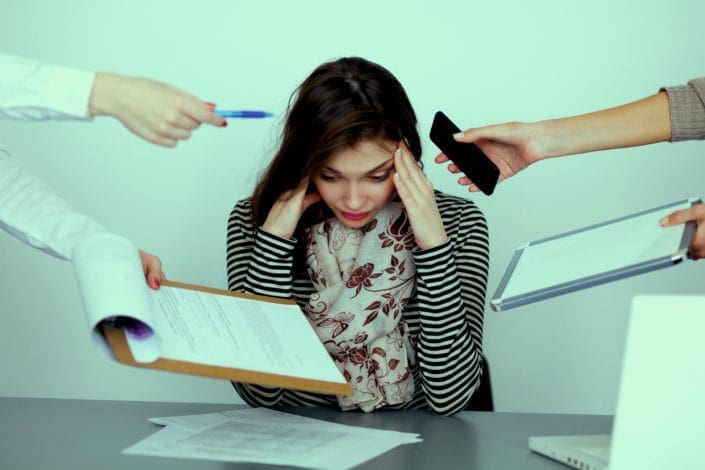mentalhealthmantra's blog

Stress has become an inevitable part
of our daily lives. With hectic work schedules, personal responsibilities, and
constantly changing circumstances, it is no surprise that stress has become a
common problem for many people. However, managing stress is crucial for our
mental and physical well-being. As a mental doctor in Bhopal, I have seen the negative effects of
stress on individuals and how it can impact their daily lives. That's why I
want to share 5 effective strategies for managing stress in daily life.
1) Identify
the source of stress:The first step in managing stress is to identify the source
of it. It could be work-related, personal relationships, financial issues, or
even internal pressure to meet certain expectations. Once you have identified
the source, you can then work on finding ways to cope with it effectively.
2) Practice
relaxation techniques:Relaxation techniques such as deep breathing, meditation,
and yoga can help reduce stress levels. These techniques help calm the mind and
body, reducing the physical symptoms of stress such as muscle tension and
headaches. Regular practice of these techniques can also improve overall
well-being and reduce the risk of developing stress-related illnesses.
3) Exercise
regularly:Exercise is not only beneficial for physical health but also for mental health.
It releases endorphins, also known as "feel-good" hormones, which can
help reduce stress and improve mood. Find an exercise routine that works for you,
whether it's going to the gym, taking a walk, or playing a sport. Regular
physical activity can also help improve sleep quality, which is essential for
managing stress.
4)
Prioritize and delegate tasks:Many times, stress is caused by feeling overwhelmed
and having too much on our plate. It is important to prioritize tasks and focus
on the most important ones first. Learn to delegate tasks to others if
possible, and don't be afraid to ask for help when needed. This can help reduce
the burden and pressure you put on yourself, ultimately reducing stress levels.
Also Read: Mental Health Counselor in Bhopal
5) Take
breaks and practice self-care:In our fast-paced lives, we often forget to take
breaks and prioritize self-care. It is crucial to take breaks throughout the
day to relax and recharge. This could be as simple as taking a short walk,
listening to music, or practicing a hobby. Additionally, make time for
self-care activities such as getting enough sleep, eating a healthy diet, and
spending time with loved ones.

Anxiety is a common mental health
issue that affects millions of people worldwide. It can manifest in various
forms, such as excessive worrying, panic attacks, and physical symptoms like
restlessness and difficulty breathing. While it is normal to experience anxiety
from time to time, it can become a problem when it starts to interfere with our
daily lives.
If you are someone who struggles with
anxiety, know that you are not alone. There are effective ways to manage
anxiety in your daily life, and seeking help from a psychiatrist in Bhopalcan provide you with the necessary
support and guidance. Here are five proven ways to manage anxiety and improve your
overall well-being:
1) Practice
Mindfulness:Mindfulness is the act of being fully present in the moment and paying
attention to your thoughts and feelings without judgment. It can help you
become more aware of your anxious thoughts and learn to accept them without
getting overwhelmed. Incorporating mindfulness techniques like deep breathing,
meditation, and yoga into your daily routine can help reduce anxiety symptoms
and improve your overall mental health.
2) Exercise
Regularly:Exercise has been proven to be an effective way to manage anxiety. Physical
activity releases endorphins, also known as "feel-good" hormones,
which can improve your mood and reduce stress and tension. Regular exercise can
also help you sleep better, which is crucial for managing anxiety. Aim for at
least 30 minutes of physical activity per day, whether it's going for a walk,
jogging, or joining a fitness class.
Also Read: OCD Treatment in Bhopal
3) Limit
Caffeine and Alcohol Intake:Caffeine and alcohol are known to worsen anxiety symptoms.
Caffeine is a stimulant that can increase heart rate and cause jitters, while
alcohol is a depressant that can affect your mood and sleep patterns. Limiting
your intake of these substances can help reduce anxiety and promote better
mental health.
4) Create a
Support System:Having a strong support system can make a significant difference in
managing anxiety. Surround yourself with people who understand and support you,
whether it's friends, family, or a therapist. Talking about your feelings and
concerns with someone you trust can help alleviate anxiety and provide you with
a sense of comfort and understanding.
5) Seek
Professional Help:If your anxiety is significantly impacting your daily life,
it is essential to seek professional help. A psychiatrist in Bhopalcan provide you with a
proper diagnosis and develop a personalized treatment plan to manage your anxiety.
Archives
- All
- January 2025
- December 2024
- November 2024
- October 2024
- September 2024
- July 2024
- May 2024
- April 2024
- March 2024
- February 2024
- December 2023
- November 2023
- October 2023
- January 2023
- December 2022
- November 2022
- October 2022
- September 2022
- August 2022
- July 2022
- June 2022
- May 2022
- April 2022
- March 2022
- February 2022
